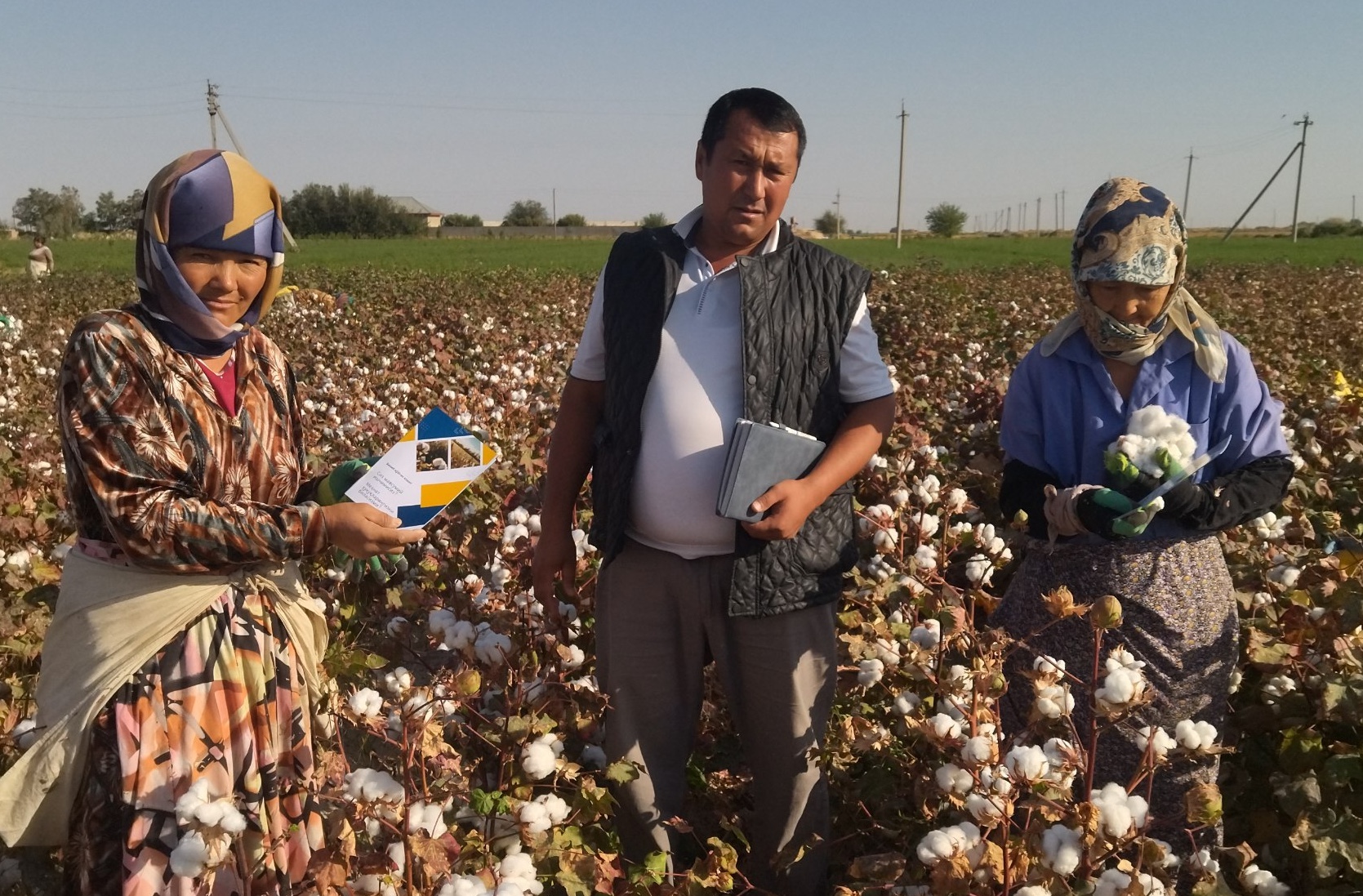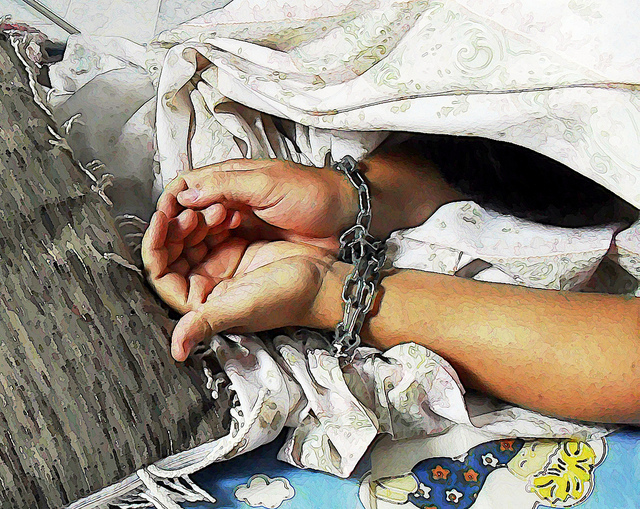Central Asian workers who migrate for good paying jobs are navigating a rapidly changing environment due to shifts in economic options and political instability. At the same time, a growing number of women and young migrant workers, who face particular...
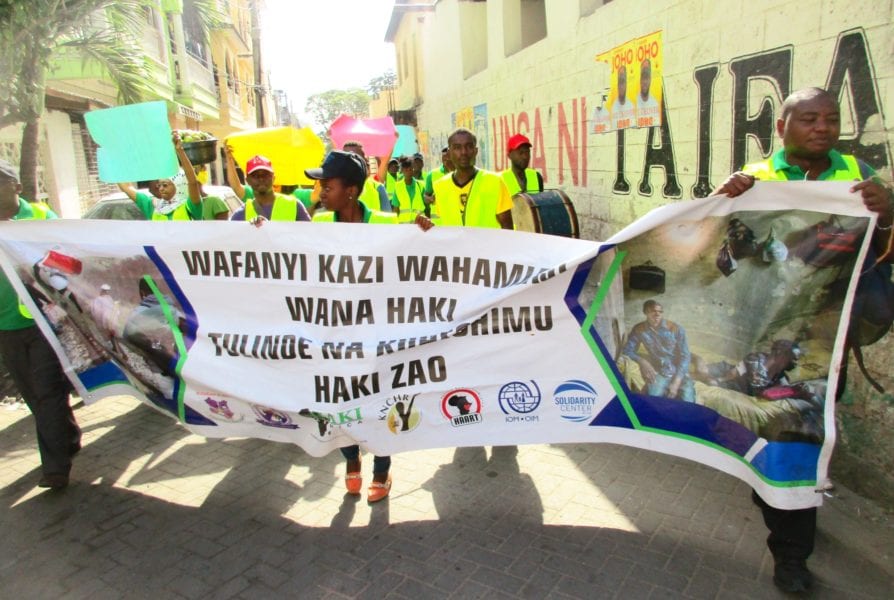
The Solidarity Center workers with partners like those in Kenya to end labor trafficking of migrant workers. Credit: Solidarity Center/Caroline Kasina
The Solidarity Center advocates an approach to combating human trafficking that puts worker rights at the forefront of solutions and calls for the labor movement to be involved.
Trafficking for forced labor results from the absence of human rights and effective governance. It often occurs in countries that restrict civic freedoms, have weak rule of law and prevent the exercise of the right to freedom of speech, assembly and association—including the right to form or join a trade union to represent their interests.
Trafficking for forced labor also thrives in un- or under-regulated supply chains and so combating trafficking must begin with empowered workers who can stand up to exploitation when it occurs.
Migrant workers are especially targets of human trafficking and forced labor. Corrupt labor brokers lie about the wages and working conditions workers should expect in a destination country and charge such huge fees for securing work that migrant workers cannot repay them even after years on the job, forcing them to remain in dangerous working conditions because their debt is too great. Employers use work visas and threats of deportation to exploit workers for forced labor.
With migrant workers, trade unions, human rights NGOs, governments and civil society coalitions around the globe, the Solidarity Center raises awareness about the causes and the extent of trafficking for forced labor and implements programs with our partners worldwide to combat this scourge. These programs address each of the four “Ps” that are part of the anti-trafficking toolkit: prevention, protection of victims, prosecution (access to justice) and partnerships. Solidarity Center programs recognize that we cannot eliminate forced labor without fundamentally changing how labor migration is managed around the world, how companies do business and how governments monitor and enforce human and labor rights.
Protecting Labor Rights in Uzbekistan’s Cotton Sector
World Cotton Day – October 9, 2024: As ubiquitous as cotton is in our everyday lives, the workers who produce and harvest this foundational crop are often invisible. This was long the case in Uzbekistan, where for decades the government forcibly mobilized millions of...
Report: Trafficking Persists in Agriculture
The trafficking of agriculture workers, including children, is widespread globally, and “practices of exceptionalism” limit workers’ rights to freedom of association, organizing and collective bargaining, according to a new report on trafficking in persons in...
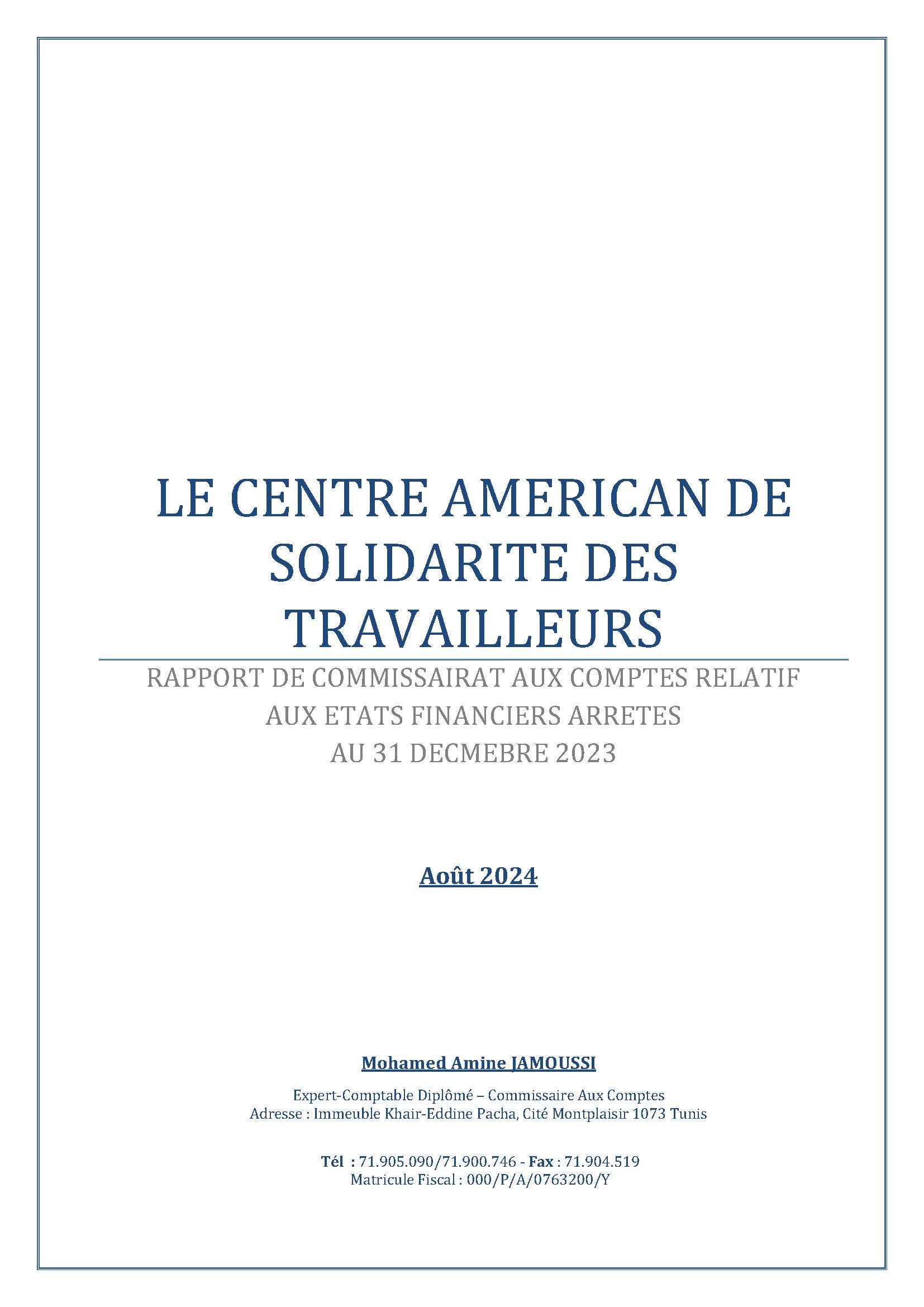
Rapport du Commissaire aux Compotes sur les Etats Financiers de L’Exercice Clos le 31 Decembre 2023
Read the full report here.

LOW PAY, NO SUPPORT: Sri Lanka Delivery Drivers Fight for Worker Rights
CLICK HERE TO READ THE FULL REPORT.

Heat Stress in the Cambodian Workplace
In Cambodia, workers health and safety and climate change are linked. This report details the results of surveys, interviews, and thermal monitoring conducted in the garment, delivery, and informal food sector that display the negative effect that heat has on workers,...
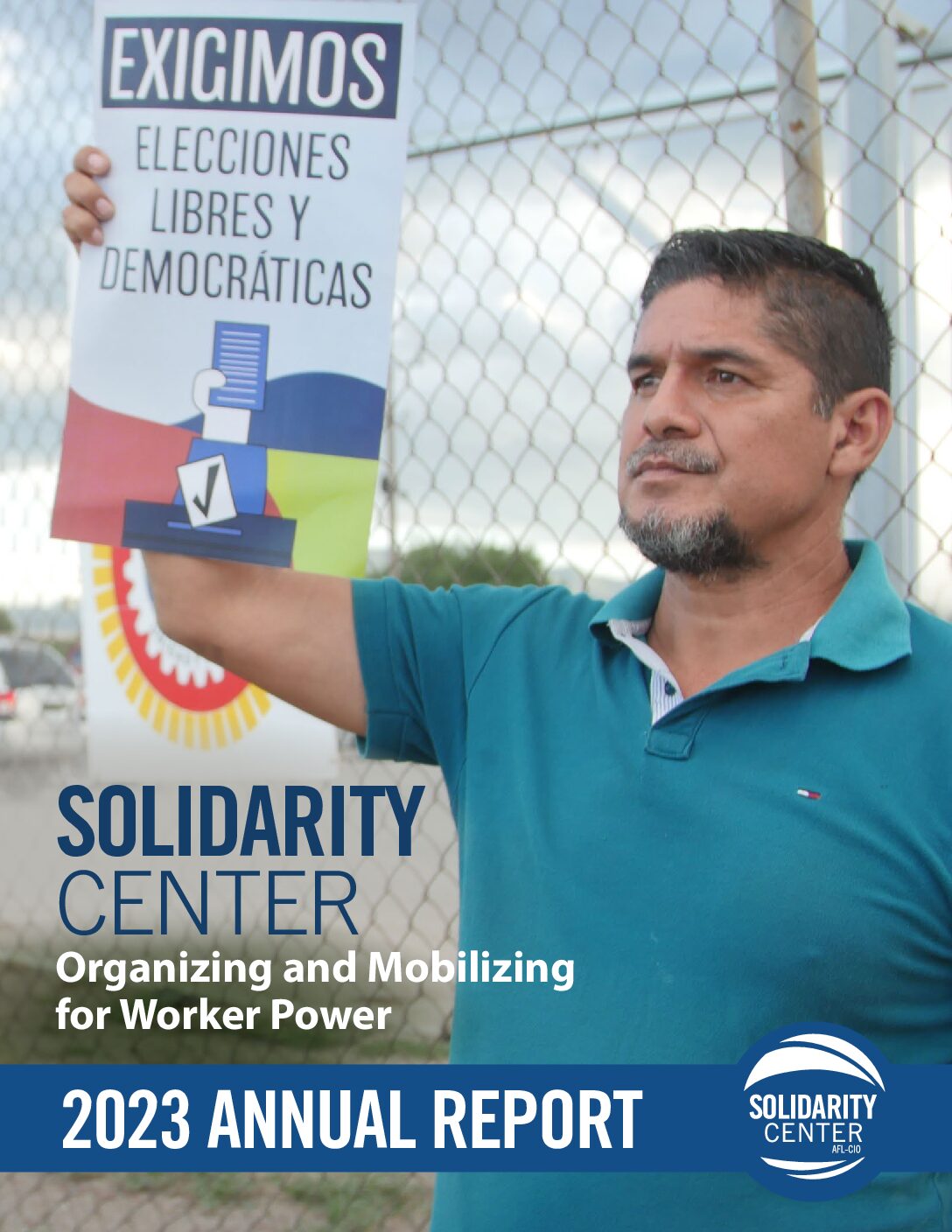
2023 Annual Report
In 2023, the Solidarity Center supported workers as they took on exploitative multinational companies and robot algorithms, demanded their governments tackle social ills and deliver on promises, and fought for justice in environments increasingly dangerous to those...
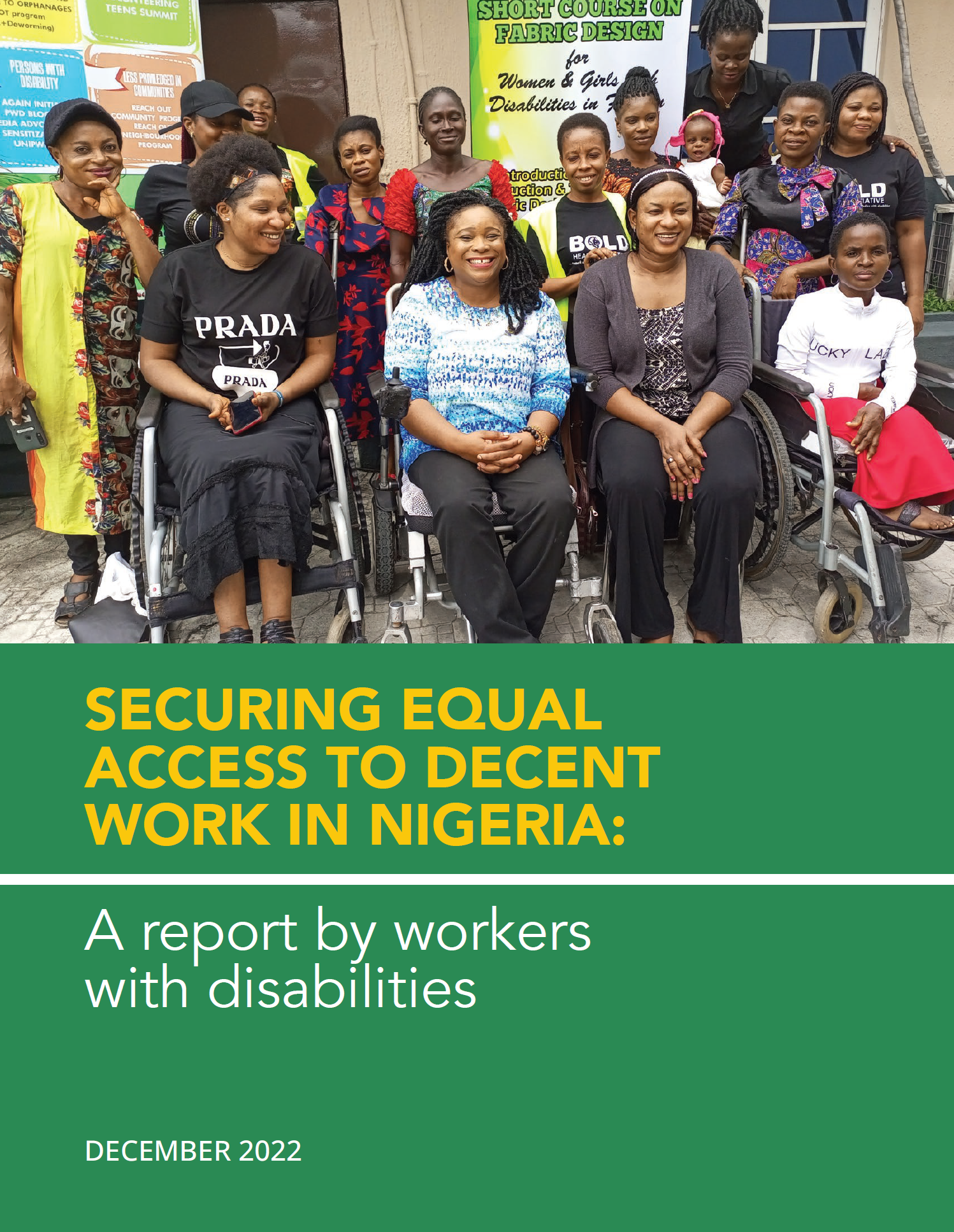
Securing Equal Access to Decent Work in Nigeria: A Report by Workers with Disabilities
A survey of more than 600 workers with disabilities in Nigeria conducted by the Trade Union Congress of Nigeria (TUC) Women Commission and the Solidarity Center in collaboration with Nigerian unions and disability rights organizations, finds that most workers...

2022 Annual Report
In 2022, the Solidarity Center marked a quarter century of supporting embattled workers, advocating and litigating for change, and celebrating worker rights advances in troubled times. As crackdowns on fundamental civil rights intensify around the world, workers and...


